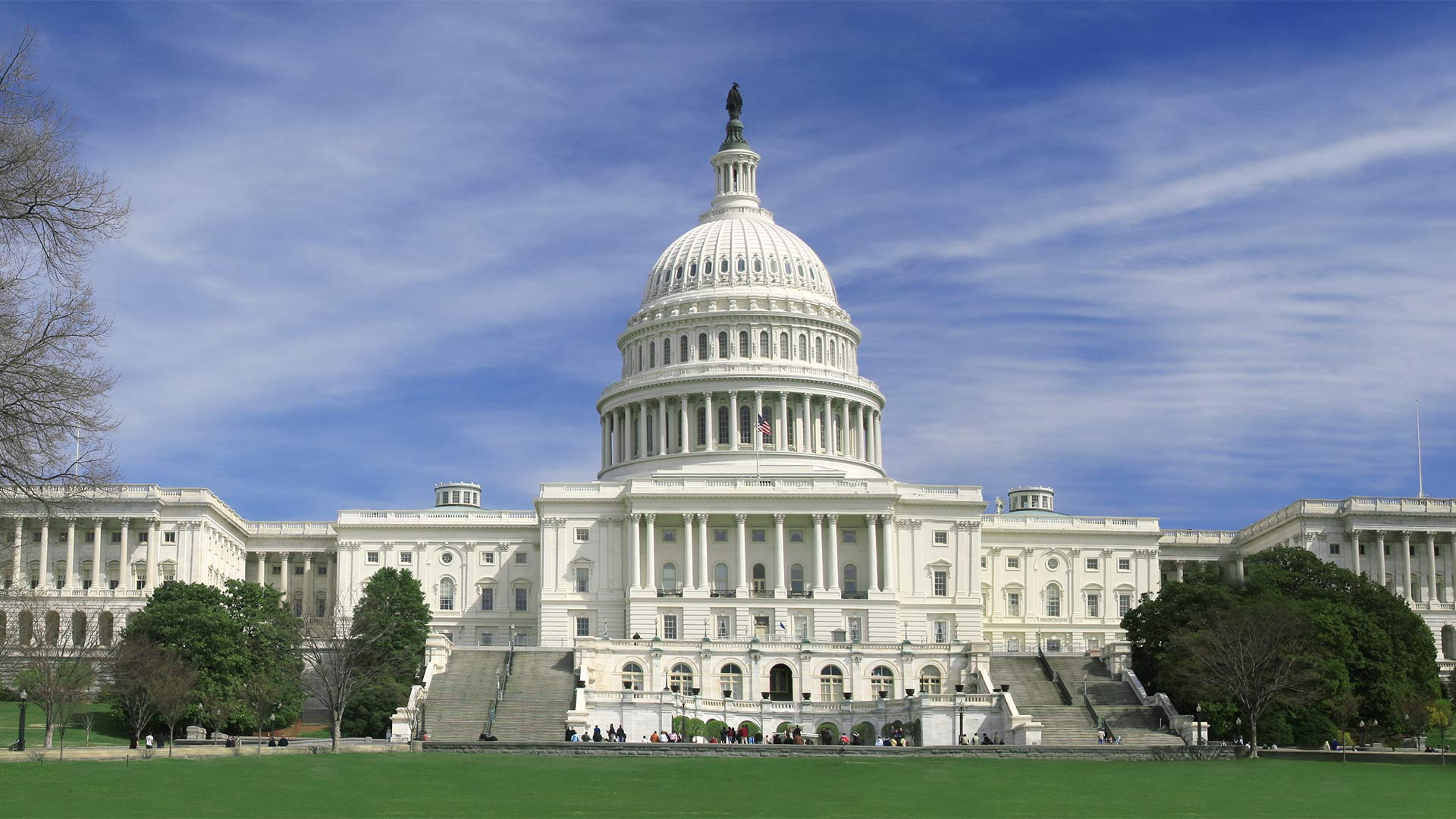Ohio employers and employees should prepare for an important payroll update this fall. Starting Oct. 1, the Ohio Department of Taxation will implement new state income tax withholding tables.
Ohio Dept. of Taxation issues new Employer Withholding Rates
Zinner & Co. Tax Team Taxes - Corporate & Business , tax , taxes , income tax , Ohio Department of TaxationNew rates effective July 1
The Ohio Department of Taxation has issued new employer withholding tables for payrolls that begin on or after July 1, 2024.
Expect The IRS To Struggle During The 2021 Tax Season
Zinner & Co. Tax Department Taxes - Planning, Rules and Returns , Taxes - Individual , tax , taxes , income tax , filing , IRSCPAs and taxpayers urged to contact elected officials and push for passage of H.R. 5155
Based on multiple media reports, the U.S. Treasury and IRS are preparing for the worst this filing season.
According to a Jan. 10 Washington Post article, the Treasury warned of enormous challenges this tax filing season that will likely delay refunds.
Treasury Department officials told reporters they predict a “frustrating season” for taxpayers and tax preparers due to delays caused by the pandemic, years of budget cuts to the IRS, and federal stimulus measures that have added to the tax agency’s workload.
Year-End Tax Planning
Zinner & Co. Tax Team gift tax , tax services , Taxes - Planning, Rules and Returns , Taxes - Individual , tax , taxes , income tax , Zinner & Co. , Tax Credit , Child Tax CreditAs we approach the end of 2021, it is important to take a closer look at your tax and financial plans. This year likely brought challenges and disruptions that significantly impacted your personal and financial situation including the continued global pandemic, remote and new hybrid work models, supply chain disruptions and rising inflation.
Now is the time to take a closer look at your current tax strategies to make sure they are still meaningful in today’s world and to take any last-minute steps that could save you tax dollars. While looming tax law changes have not been finalized, many tax planning opportunities still exist! Here are some issues to consider as we approach year-end.
The Biden Administration's Proposed Tax Law Changes
Zinner & Co. Tax Team Taxes - Corporate & Business , Taxes - Individual , tax , taxes , income tax , tax avoidanceIn early June, the U.S. Treasury Department released its general explanations of proposed changes to the U.S. tax code.
Please note, the following items have only been proposed. In order to become law, they must pass through both the U.S. House of Representatives and the U.S. Senate.
Ohio Income and School Tax Deadlines Moved to May 17
Zinner & Co. Tax Team Taxes - Planning, Rules and Returns , Taxes - Individual , tax , taxes , income tax , ohioS.B. 18 will Conform Ohio with Federal Tax Law Changes
Ohio Tax Commissioner Jeff McClain recently announced Ohio is following the federal government and Internal Revenue Service in extending the deadline to file and pay Ohio individual income and school district income taxes for tax year 2020.
The new deadline is May 17, an extension of approximately one month from the original deadline of April 15.
Tax Filing and Payment Deadline Pushed Back to May 17
Zinner & Co. Tax Team tax services , Taxes - Planning, Rules and Returns , Taxes - Individual , tax , taxes , income tax , IRS , Treasury DepartmentThe Treasury Department and Internal Revenue Service announced the federal income tax filing due date for individuals for the 2020 tax year has been pushed to May 17.
The IRS will be providing formal guidance in the coming days. However, individual taxpayers do not need to file any forms or call the IRS to qualify for the new federal tax filing and payment deadline.
Reporting of Other Government Payments
Zinner & Co. Tax Team Bureau of Worker's Compensation , income tax , ohio , Department of Job and Family Services , Unemployment BenefitsMany businesses who received Ohio Bureau of Worker Compensation rebate or dividend checks during 2020 recently received a letter from the Ohio Bureau of Workers Compensation requesting that they provide the BWC a completed Form W-9 to provide the information needed to complete the IRS tax statement Form 1099-G, which reports taxable Government Payments. This action also indicates that these rebate payments could potentially be subject to both Ohio state income tax and Commercial Activity Tax.
New 1099-NEC Form For Nonemployee Compensation
Zinner & Co. Tax Team Taxes - Planning, Rules and Returns , Taxes - Individual , tax , taxes , income tax , tax avoidanceThe PATH Act accelerated the due date for filing Form 1099 that includes nonemployee compensation (NEC) from February 28 to January 31 and eliminated the automatic 30-day extension for forms that include NEC. Starting with tax year 2020, taxpayers should use Form 1099-NEC to report nonemployee compensation.
Form 1099-NEC replaces the use of box 7 on Form 1099-MISC from previous years. Other uses of 1099-MISC have not changed and will continue to be used for common payments such as rent and payments to an attorney.
IRS Clarifies 90-Day Payment Relief
Zinner & Co. Tax Team tax services , Taxes - Corporate & Business , Taxes - Planning, Rules and Returns , Taxes - Individual , tax , taxes , income tax , Zinner & Co. , Coronavirus , Treasury Department , COVID-19 , Deferring Tax PaymentsOn March 18, the Internal Revenue Service provided clarification to special payment relief for individuals and businesses in response to the COVID-19 Outbreak.
For individual returns, income tax payment deadlines with a due date of April 15, 2020, are automatically extended until July 15, 2020, for up to $1 million of their 2019 tax due.
This payment relief applies to all individual returns, including self-employed individuals, and all entities other than C-Corporations, such as trusts or estates. The IRS will automatically provide this relief to taxpayers. Taxpayers do not need to file any additional forms or call the IRS to qualify for this relief.
About Us

Since 1938, Zinner has counseled individuals and businesses from start-up to succession. At Zinner, we strive to ensure we understand your business and recognize threats that could impact your financial situation.
Recent Blog Posts
Categories
- 1031 Exchange (2)
- 401k (2)
- 529 plan (4)
- ABLE Act (1)
- account systems (3)
- accounting (8)
- Affordable Care Act (8)
- alimony (2)
- American Rescue Plan Act (1)
- Ask the Expert (5)
- Audit and Assurance Department (13)
- audits (8)
- Bank Secrecy Act (1)
- banks (1)
- Barbara Theofilos (6)
- Beneficial Ownership Information (1)
- Bitcoin (1)
- block chain (2)
- BOI (3)
- Bookkeeping (1)
- Brett W. Neate (28)
- budgets (1)
- Bureau of Worker's Compensation (12)
- Business - Management, Issues & Concerns (51)
- business income deduction (3)
- business succession (7)
- business travel expense (3)
- business valuation (5)
- capital gains (2)
- careers (7)
- cash flow (2)
- Charitable Donations (2)
- Child Tax Credit (2)
- Chris Valponi (8)
- City of Cleveland (1)
- Cleveland COVID-19 Rapid Response Fund (1)
- Cleveland Rape Crisis Center (2)
- college (3)
- Community (24)
- Compliance (1)
- Coronavirus (24)
- Corporate Transparency Act (1)
- COVID-19 (30)
- Credit card fraud (5)
- credit reporting (2)
- cryptocurrency (2)
- CTA (2)
- cybersecurity (17)
- dead (1)
- DeAnna Alger (6)
- death (2)
- debt (4)
- deductions (14)
- Deferring Tax Payments (4)
- Department of Job and Family Services (2)
- depreciation (2)
- Digital Tax Payment (3)
- divorce (4)
- DOMA (3)
- Economic Impact Payments (2)
- Economic Injury Disaster Loan (4)
- education (8)
- EIDL (1)
- electronic filing (4)
- Electronic Tax Payments (3)
- Emergency Working Capital Program (1)
- employee benefit plan auditor (1)
- Employee Leave (3)
- Employee or Independent Contractor (6)
- Employee Retention Credit (3)
- employment (2)
- ERC (3)
- Eric James (8)
- Estates, Gifts & Trusts (48)
- expenses (5)
- Families First Coronavirus Response Act (2)
- FASB (1)
- FBAR (1)
- FDIC coverage (1)
- Federal Assistance (4)
- filing (3)
- financial planning (8)
- Financial Planning - College (9)
- financing (3)
- Firm news (119)
- first responders (1)
- FMLA (1)
- foreign assets (3)
- fraud (38)
- FSA (1)
- fundraising (9)
- Gabe Adler (1)
- gift tax (5)
- HDHP (2)
- health care (3)
- home (2)
- home office (1)
- Howard Kass (2)
- HRA (1)
- HSA (5)
- identity theft (34)
- income (1)
- income tax (58)
- independent contractor (1)
- Inflation (1)
- Insurance (7)
- internal control (4)
- international (2)
- Intuit (1)
- investments (4)
- IRS (91)
- jobs (5)
- John Husted (1)
- K-1 (1)
- Laura Haines (3)
- Layoff (2)
- Layoffs (1)
- leadership (3)
- lease accounting standards (1)
- life insurance (1)
- LLC (3)
- Loans (2)
- longevity income annuities (1)
- Lorenzo's Dog Training (1)
- Magic of Lights (1)
- management advisory (3)
- manufacturing (2)
- Matt Szydlowski (3)
- medical (7)
- Medicare (2)
- mergers and acquisitions (1)
- Mike DeWine (2)
- Millennial Concepts (2)
- minimum wage (1)
- NAIOP (1)
- National Defense Act (1)
- non-profit reporting (10)
- non-profits (38)
- not-for-profit (26)
- OATC (1)
- OBBB (3)
- ODJFS (1)
- office (1)
- ohio (13)
- Ohio Accounting Talent Coalition (1)
- Ohio business owners (18)
- Ohio Department of Jobs and Family Services (4)
- Ohio Department of Taxation (7)
- Ohio Incumbent Workforce Training Voucher Program (1)
- Ohio Society of Certified Public Accountants (1)
- One Big Beautiful Bill (10)
- Online Tax Payment (4)
- Operations (2)
- OPERS (1)
- OSCPA (1)
- Overtime (2)
- owners of foreign entities (1)
- partnerships (5)
- passwords (1)
- Paycheck Protection Program (9)
- payroll (8)
- penalties (3)
- pension (2)
- personal finance (2)
- planning (4)
- ppp (7)
- Productivity (5)
- Qualified Business Income (1)
- quickbooks (10)
- real estate (14)
- record retention (2)
- records (2)
- Reporting (1)
- Republican National Convention (1)
- Retirement Planning & IRAs (54)
- Richard Huszai, CPA (5)
- RITA (1)
- Robin Baum (6)
- RRF (1)
- S Corporation (1)
- SALT (8)
- SBA (8)
- scams (14)
- SECURE 2.0 Act (1)
- security (6)
- SharedWorks (1)
- Shutdown (3)
- Silver Linings (9)
- simplified employee pension (1)
- Small Business (5)
- SMB (12)
- Social Media (1)
- social security (4)
- Speaker Series (2)
- spouse (1)
- start ups (8)
- Stay at Home Order (3)
- Steven Mnuchin (1)
- Sue Krantz (6)
- SVOG (1)
- tangible property (1)
- tax (27)
- tax avoidance (12)
- Tax Credit (7)
- Tax Cuts and Jobs Act of 2017 (31)
- Tax Exempt (1)
- Tax Holiday (1)
- Tax Interns (2)
- tax services (28)
- taxes (45)
- Taxes - Corporate & Business (107)
- Taxes - Individual (125)
- Taxes - Planning, Rules and Returns (198)
- TechCred (1)
- technology (8)
- The CARES Act (6)
- The SOURCE (1)
- tiag (3)
- transaction advisory (2)
- Treasury Department (5)
- Trump Account (1)
- tuition (3)
- U.S. Department of the Treasury (1)
- U.S. Small Business Administration (6)
- Unclaimed Funds (1)
- Unemployment Benefits (4)
- Unemployment Insurance (1)
- withdrawls (2)
- withholding (6)
- Workers Comp Billing Changes (1)
- Zinner & Co. (35)
- Zinner News (32)











